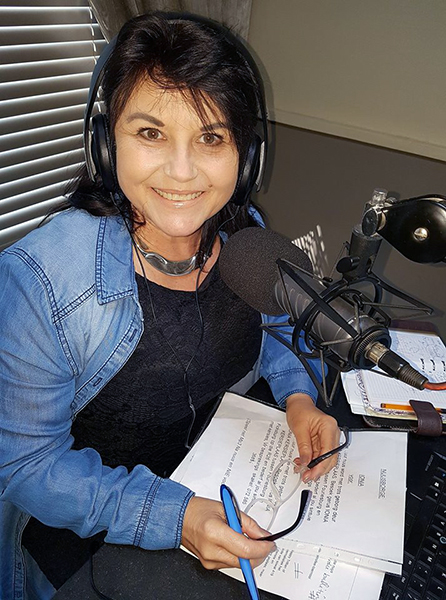Latest News Archive
Please select Category, Year, and then Month to display items
12 October 2020
|
Story Arina Engelbrecht
|
Photo Supplied
 Arina Engelbrecht from Organisational Development and Employee Well-being believes physical activity has a number of benefits for one’s health, including stress relief.
Arina Engelbrecht from Organisational Development and Employee Well-being believes physical activity has a number of benefits for one’s health, including stress relief.
Being physically active plays a big role in preventing the development of mental-health problems and in improving the quality of life of people experiencing mental-health problems.
Treatment for depression
Physical activity can be an alternative treatment for depression. It can be used as a stand-alone treatment or in combination with medication and/or psychological therapy. It promotes all kinds of changes in the brain, including neural growth, reduced inflammation, and new activity patterns are formed that promote feelings of calm and well-being. It releases endorphins – powerful chemicals in the brain that energise your spirit and make you feel good.
Physical activity can be very effective in relieving stress. Research in adults has found that physically active individuals tend to have lower stress levels compared to individuals who are less active. It also leads to improved sleep. When a person sleeps better and feels more rested, overall quality of life improves. They cope better with daily life stressors.
Reduce Alzheimer's risk
Regular physical activity can reduce your risk of developing Alzheimer's disease by up to 50%. It can also slow down further deterioration in those who have already started to develop cognitive problems. It stimulates the brain’s ability to maintain old connections as well as to make new ones.
A study asked people to rate their mood immediately after periods of physical activity (e.g. going for a walk/run, cycling, doing housework) and periods of inactivity (e.g. reading a book or watching television). Researchers found that participants felt more content, more awake, and calmer after being physically active compared to after periods of inactivity.
In conclusion, people who are physically active feel a sense of well-being, feel more energetic throughout the day, sleep better at night, have sharper memories, and feel more relaxed and positive about themselves and their lives.
“Being physically active not only changes your body, it changes your mind,
attitude, and your mood.” – Arina Engelbrecht
Academic volunteers time on community radio
2017-12-25

Dr Marian Human-Nel
Photo: Supplied
Superior Scholarship. Human Embrace. Institutional Distinctiveness. Emergent Leadership. Public Service.
These are the core values underpinning both the university’s academic and human projects. It is the last one, public service, that resonates well with Dr Marian Human-Nel. She does her part as a radio presenter and news reader on Maluti FM 97.1, a Bethlehem-based community radio.
“As a community radio station, we are not only responsible for entertaining and informing the public, but we also do a lot of community fundraising projects. We also do a lot of wellbeing activities in the Eastern Free State,” said Dr Human-Nel, Subject Head and Lecturer in the Department of Afrikaans, Dutch, German and French on the Qwaqwa Campus.
Sharing of information and knowledge
Dr Human-Nel volunteers her services as presenter of two programmes. “I present Kollig in which I invite my Qwaqwa Campus colleagues and professionals in the community to talk about their specific fields of interest and research. The focus here is on information and sharing knowledge. We have a slot called ‘This Week in History’ written and prepared by my colleague from the History department.”
Another show that Dr Human-Nel presents is called Fluit-Fluit Storietyd on which she reads and does voice performance of Afrikaans short stories and poems with specific music. “The Fluit-Fluit programme informs and entertains through cultural activities,” she said.
Maluti FM broadcasts over a 160-kilometre radius around Bethlehem and is also available online.